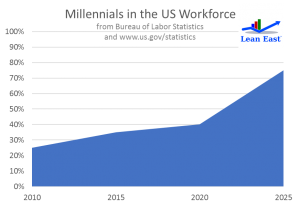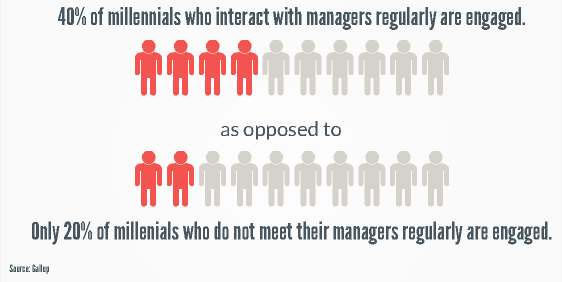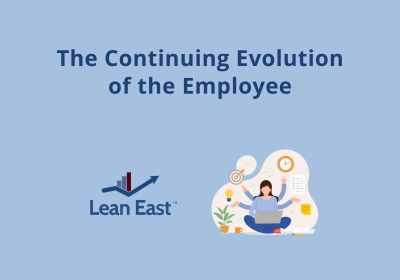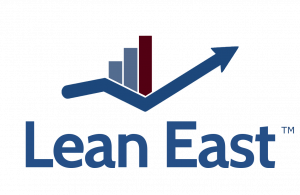Millennials (also known as Generation Y) represent people born from about 1982 to 2000.1 These 17 to 35-year-olds are expected to represent 75% of the US workforce by 2025 and are technologically savvy and purpose-driven. Yet business leaders have expressed frustration with this group of workers. How can they attract, hire and retain talented young millennials? This post shares five ways to engage millennials.
 Leaders find millennials make challenging employees due to their sense of entitlement, impatience, and inattention to authority.2 Many millennials struggled to find good jobs during the 2008 recession and have been called “lazy, entitled narcissists who still live with their parents” by Time Magazine. Yet millennials are technologically savvy and purpose-driven. Companies that relate well to this age group can benefit greatly. Here are five ways you can engage the millennials who already work for you and attract talented new millennials to your organization.
Leaders find millennials make challenging employees due to their sense of entitlement, impatience, and inattention to authority.2 Many millennials struggled to find good jobs during the 2008 recession and have been called “lazy, entitled narcissists who still live with their parents” by Time Magazine. Yet millennials are technologically savvy and purpose-driven. Companies that relate well to this age group can benefit greatly. Here are five ways you can engage the millennials who already work for you and attract talented new millennials to your organization.
Share your “Why”
Millennials want their work to have meaning and to also make a difference. Growing up in a world of instant gratification leads to impatience if they feel disconnected from the mission. Senior leaders need to communicate company values that resonate with their millennial workforce. Simon Sinek shares how to inspire them by starting with why.
Discuss growth opportunities
It is important to millennials that you provide many opportunities for them to grow and advance in their career. Schedule frequent 1-on-1 meetings to provide feedback and discuss development goals. What skills do they personally need to develop? How do they want to make an impact within the organization?

Leverage technology to promote teamwork
Having grown up with technology at the ready, millennials aren’t used to being restricted by an IT department and are quickly frustrated by some of the poor enterprise systems in use today. They want to collaborate and learn with others, not work in silos, so knowledge must flow seamlessly throughout the team. Some companies find that establishing a mentor program is a great way to engage millennials in the workplace while also allowing older employees who struggle with technology to gain some support. Organizations should ask their millennial employees for input and support as they implement new technologies.
Focus on results
Millennials are infamous for demanding they set their own schedule – ignoring the set schedule of the corporation. Click on the video below for one of many hilarious examples of this stereotype.
This is also a generation that doesn’t switch off and will check their emails and connect with coworkers on weekends. Corporations must adjust to this changing workforce by focusing less on the office schedule and more on employee results. Set clear project goals and productivity metrics and don’t worry as much about whether your millennial employee is at the office exactly at 7:30 AM. Use 1-on-1 meetings to review performance and reinforce how meeting or exceeding goals will impact the rest of the team.
Involve in improvements
How should you deal with a group of employees who are easily frustrated with inefficiencies and poor culture? Ask them for their improvement ideas! We teach simple continuous improvement methods based on PDCA thinking. Allow millennials to experiment with new methods or processes, just be sure that they set goals and measure results.
Millennials will soon represent the majority of the US workforce. They are typically enthusiastic, entrepreneurial, purpose driven and open-minded team players. Organizations that adapt to benefit from their strengths will be more successful than those that try to change millennials.
Do you agree with these five suggestions for engaging millennials? Please share feedback and make additional suggestions in the comments below.
1 The definition of a millennial varies; this uses the US Census project ages for studying the size of the US workforce.
2 This entire post discusses common stereotypes of millennials; not every millennial will have these views, beliefs or traits.





That video was at once very funny and very painful (nailed it!)
Great points. Sounds like just plain old good management practices!
Yes, good management practices seem to work for all generations!
Except possibly the one about technology, these practices are important for everyone. Purpose, autonomy and mastery are needed by all!